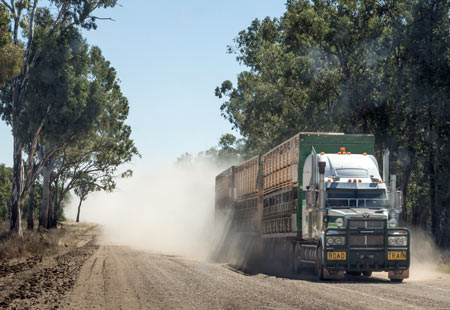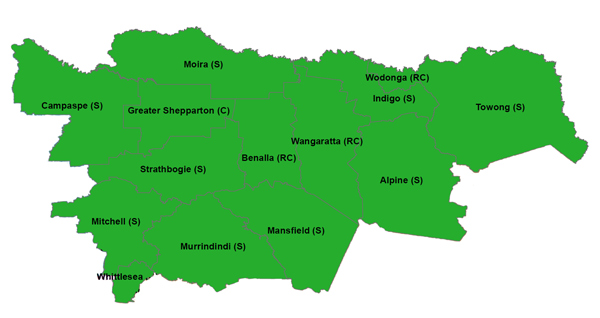
Regional Round-up is a monthly newsletter providing an overview into the environmental and business conditions affecting farmers and rural businesses in the Goulburn Valley and North East Victoria.
Dairy
High feed and water costs combined with poor climate predictions for spring has seen an increase in destocking. Prices for milkers and choppers are low due to market saturation levels. Milk production is reasonable for the current season however milk prices have opened slightly lower than expected for the major companies.Cropping
Dry sow canola in northeast Vic/southern NSW has failed. Other cereals in the area are approximately thirty percent less than last year. In some areas however, cereals have germinated well.Some crops will be converted into hay given there is still a strong demand for hay amid dwindling supply. Overall yield for the season is expected to be below average. Much of this can be attributed to poor climate conditions.
A fodder and stock transport subsidy has been announced for NSW which has been back-dated to 1 January 2018.
Sheep
Wool and fat lamb prices continue to be strong although the increased prices are reportedly now steering consumers toward alternative meat sources.Records continue to tumble as wool prices continue to rise. A shortage of lamb has pushed lamb prices to the very high range.
Some NSW lambs sold into Bendigo saleyards where prices remain strong.
Fodder prices remain a concern for sheep farmers and supplementary feeding continues as dry conditions persist.
Beef
Cattle continue to be sold as prices stall in response to difficult conditions. Sales of destocking unfinished cattle emerged in response to a projected poor spring. Prices are falling locally with some buyers not being present at all markets. Larger numbers of export cattle were presented locally, the majority being cows.Horticulture
The Victorian state government announced $709,920 to Moira Shire Council to fund the continued delivery of the Goulburn Murray Valley Regional Fruit Fly Action Plan. The grant will increase awareness of best practice through advertising, community and grower workshops, working directly with a number of service clubs to support community action and create fruit fly signage for roadsides.
The program will fund voluntary removal of host trees in urban areas, public lands and unmanaged orchards. Field officers will also be funded to identify causes of fruit fly hot spots and work with landholders to manage the problem with additional trapping to help provide a clearer picture of the fruit fly population in key areas.
Irrigation
Cental Goulburn June JulyHRWS $3,300/ML $3,400-$3,500/ML
LRWS $450-$500/ML $450-$500/ML
Temporary trade $170-$200/ML $290-$310/ML
The notion of a “green drought” is gaining traction and many farmers have commenced destocking plans.
There has been no rainfall run-off so far across winter. Notably, the last six months has seen below average rainfall across the eastern states. Water and hay prices continue to climb.











